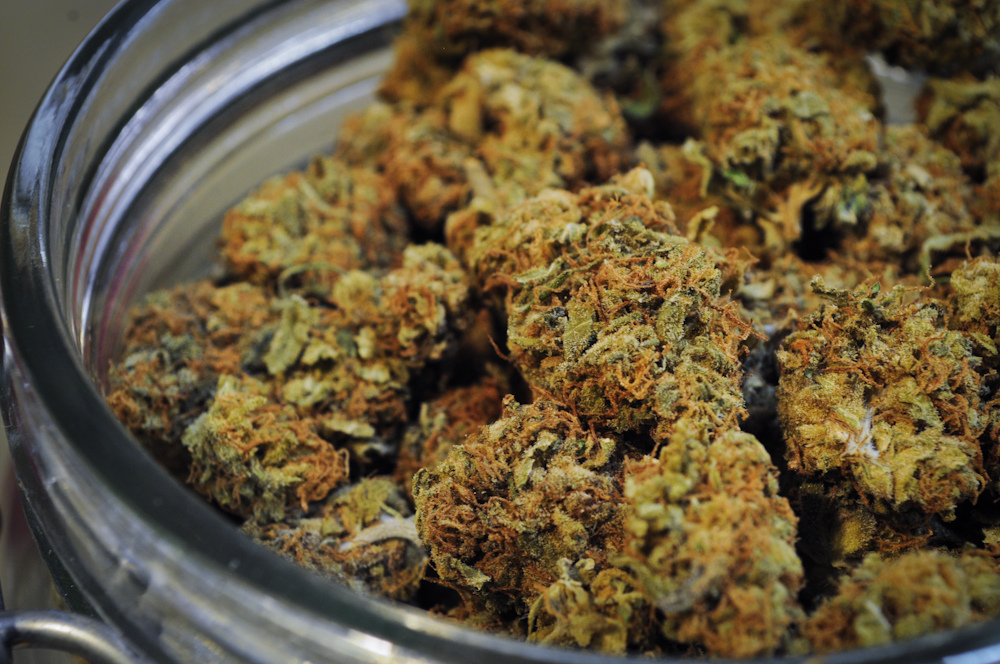Politics
New Bill On Underage Marijuana Possession Could End New Jersey Legalization Stalemate Between Governor and Lawmakers

New Jersey lawmakers plan to send Gov. Phil Murphy (D) a marijuana “clean-up” bill to address a number of his remaining policy concerns around cannabis, including how the state would deal with people under 21 caught with the drug.
The legislation, which both chambers are expected to take up in the coming week, is believed to be a final step in securing Murphy’s approval as the state scrambles to establish a regulatory framework for legal marijuana. More than two-thirds of state voters approved legalization at the ballot box in November.
Under the new bill, A5211, people between the ages of 18 and 20 would be subject to a $250 civil fine for possession of up to an ounce of marijuana, regardless of whether the cannabis was obtained through a licensed store or an illegal dealer. Possessing between one and six ounces would carry a $500 fine.
People under 18, meanwhile, would not be fined but would instead be sent to a juvenile justice court.
The proposal would clarify penalties contained in two separate bills already passed by the legislature that are currently on Murphy’s desk: a measure to establish a regulatory framework for the state’s new marijuana market and another to decriminalize possession of up to six ounces of cannabis. Lawmakers sent both measures to Murphy last month.
Under the existing decriminalization bill, underage possession of marijuana would not carry any penalties. The legalization bill, however, would impose criminal penalties for underage possession of marijuana purchased from legal stores, and it would subject people under 18 to a petty disorderly persons charge.
Murphy’s office said last week that the governor won’t sign either bill until there are clear, noncriminal penalties for people under 21 in order to deter underage use.
The new clean-up bill, filed on Monday by Assemblymembers Annette Quijano (D) and Benjie Wimberly (D), would also make a handful of other technical changes, including directing state police to work with marijuana regulators to develop standards for “workplace impairment recognition experts,” who would be responsible under the legalization bill for determine whether employees are high on the job.
A Senate version of the bill is also in the works, although language of that measure was not immediately available.
—
Marijuana Moment is already tracking more than 100 cannabis bills in state legislatures and Congress this year. Patreon supporters pledging at least $25/month get access to our interactive maps, charts and hearing calendar so they don’t miss any developments.
![]()
Learn more about our marijuana bill tracker and become a supporter on Patreon to get access.
—
Sen. Nicholas Scutari (D), who sponsored the legalization bill and has pushed colleagues to pass it as quickly as possible, told reporters on Tuesday that the Senate version of the bill may differ slightly from the Assembly’s version.
“It’s being re-cleaned up as we speak,” Scutari told NJ.com. “That bill that the Assembly has, although it’s very close, it’s not going to be exactly what we’ll introduce.”
Unnamed sources in the Murphy administration have also indicated that the bill represents growing agreement between lawmakers and the governor, although further changes could still be made. “It’s the consensus bill, but the final language is still being tweaked,” one administration official told Politico.
The Senate Judiciary and Assembly Appropriations Committees are set to take up their respective chambers’ versions of the bill on Thursday, according to the state’s legislative calendar. Presumably the panels will move to make the two identical. Both chambers of the full legislature could then vote to send the clean-up legislation to Murphy as soon as Monday.
Already the state is in a precarious position with regard to the legality of marijuana. The voter-approved constitutional amendment legalizing the drug took effect on January 1, but because the regulatory bill has not been signed, existing laws against cannabis possession and use are still in effect.
Meanwhile, State Attorney General Gurbir Grewal (D) said in November that prosecutors should use discretion and suspend marijuana possession cases until the regulatory bill becomes law, although city- and county-level prosecutors could still bring charges. The fate of people arrested and charged in the meantime could be decided by potential court challenges to the constitutionality of the criminal statutes that for now remain on the books.
Scutari and other lawmakers first introduced the marijuana regulatory bill in November, just days after voters approved the legalization referendum, and the bill has encountered repeated delays on its route to the governor’s office. Many have complained that during the process, the language of the latest versions of the constantly changing bill was often unavailable for review by either lawmakers or the public.
“This whole situation could have been avoided if lawmakers, advocates, & the public actually had time to read the bills & provide feedback,” Amol Sinha, the executive director of ACLU of New Jersey, said on Twitter late last month. “Better process yields better policy, but here we are. We’ve been at this for YEARS.”
New York Lawmakers File Marijuana Legalization Bill For 2021 Session














